Praise for The Song Remains the Same
Striking stories and insights on every page. I kept learning something new, even with songs I thought I knew. This is a book to keep returning to. Good for the novice and the expert, too. Be warned, it may take a while to get through as youll want to dig in to each song anew. Paul Kelly
As much about singing, musicianship and recording as it is about songwriting, this eclectic ride through a unique choice of songs (everyone will argue for alternatives) is cleverly curated and littered with intriguing details about the creators and their times, filled with loving cross-references to other songs and deft musical analysis. I defy anyone not to leap online to listen to the unfamiliar, or re-listen to old favourites in light of new detail. One of the best games in this book is figuring out why one song follows the other: theres always an intelligent, often very funny, link. Robyn Archer
Praise for Try Whistling This
Andrew Ford delivers with such rare clarity and passion that even the self-confessed cloth-eared and tone deaf will be musically awakened and enlightened. Richard Tognetti
Ford is the most literate of composers; the most musical of writers. He demonstrates a seemingly endless knowledge of his field, while writing brilliant, entertaining criticism. Australian Book Review
A top-notch critic Our own answer to Americas Alex Ross. Rolling Stone
Entertaining and knowledgeable. The Courier Mail
Published by La Trobe University Press in conjunction with Black Inc.
Level 1, 221 Drummond Street
Carlton VIC 3053, Australia
www.blackincbooks.com
www.latrobeuniversitypress.com.au
La Trobe University plays an integral role in Australias public intellectual life, and is recognised globally for its research excellence and commitment to ideas and debate. La Trobe University Press publishes books of high intellectual quality, aimed at general readers. Titles range across the humanities and sciences, and are written by distinguished and innovative scholars. La Trobe University Press books are produced in conjunction with Black Inc., an independent Australian publishing house. The members of the LTUP Editorial Board are Vice-Chancellors Fellows Emeritus Professor Robert Manne and Dr Elizabeth Finkel, and Morry Schwartz and Chris Feik of Black Inc.
Copyright Andrew Ford and Anni Heino 2019
Andrew Ford and Anni Heino assert their right to be known as the authors of this work.
ALL RIGHTS RESERVED.
No part of this publication may be reproduced, stored in a retrieval system, or transmitted in any form by any means, electronic, mechanical, photocopying, recording or otherwise, without the prior consent of the publishers.
9781760640118 (paperback)
9781743821060 (ebook)

Cover design by Regine Abos
Cover image Dome Studio/Shutterstock
Text design and typesetting by Akiko Chan
To Anon.
Introduction
This tune was composd by Spencer the Rover,
As valiant a man as ever left home
He had been much reducd,
Which caused great confusion,
And that was the reason he started to roam.
In Yorkshire, near Rotherham, he had been on the ramble;
Weary of travelling, he sat down to rest.
At the foot of a mountain
Theres a clear crystal fountain:
With bread and cold water he himself did refresh.
With the night time approaching, to the woods he resorted,
With woodbine and ivy his bed for to make,
But he dreamt about sighing
Lamenting and crying:
Go home to your family and rambling forsake.
Twas the fifth day of November, I have reason to remember,
When first he came home to his family and wife.
They did stand so astounded
Amazed and dumbfounded
To see such a stranger once more in their sight.
His children come around him with their prittle-prattling stories,
With their prittle-prattling stories to drive cares away.
Hes as happy as those
As have thousands of riches.
At home hell remain, and not ramble away.
This tune was composd by Spencer the Rover,
As valiant a man as ever left home
He had been much reducd,
Which caused great confusion,
And that was the reason he started to roam.
Is Spencer the Rover the only song signed by its composer?
Other songwriters have mentioned themselves. Bo Diddley was the named hero of a number of his own songs, Elton Johns Your Song is one of dozens that describes the process of songwriting (not that he wrote the words), and since the troubadours and trouvres of medieval France, there have been thousands of songs addressed, in the Beatles words, From Me to You.
But Spencer identifies himself in the first line, laying claim to his story and to the words and music that tell it. This tune was composd by him. In some versions its This song or These words. Whatever. Its his song, on loan to the singer for the duration of a performance. Perhaps thats true of any song the songwriter lends it to the singer but in Spencers case, its poignant: as a vagrant, he would have had few other possessions.
Of course, the song is credited to Anon. It is anonymous, traditional. Who knows if there was a real Spencer? Probably there were dozens of them. Certainly, there are multiple versions of the song to be found throughout the island of Great Britain. In many of them, including one sung for centuries by the Copper Family of Rottingdean in Sussex, Spencer had travelled through Britain and most parts of Wales; but between versions the differences arent great, the song fleshed out here or there, an extra verse of contentment added to celebrate Spencers eventual homecoming.
One thing that most versions of Spencer the Rover share is the reference to the Yorkshire town of Rotherham. Even the Coppers south-coast version mentions the place, leading some writers to speculate that the song itself must have originated there. Perhaps it did, although given Spencer is on the ramble near Rotherham, he quite likely set out from somewhere else.
The element of the song that all versions seem to include is the prittle-prattle of Spencers children, who crowd eagerly around this stranger upon his return. It is a piercingly exact image, which the song repeats a detail that summons the singer and listener into the childrens clamour. Whatever it was that had reducd him in the first place industrialisation, the enclosure of farming land, economic hard times, mental illness it was the thought of his family lamenting and crying that brought him home. And now here they are, all talking at once.
Perhaps this affirmation of family life is what endeared the song to our small daughter, for whom it became an oft-requested lullaby (thats our version given here, derived largely from the version sung by John Martyn on his album Sundays Child). In the nearly nightly performances at our place the song quickly took on some of the qualities of musical theatre, as Elsie would sit up in bed at the end of verse two to take a sip of cold water at the same moment as Spencer.
The point of the bedtime song is to unite child and parent in a special and important way. Whether or not the child understands the words of a lullaby, she certainly understands the tone of the voice singing it. A lullaby is the days final moment of parentchild bonding. It makes sleep easier, if not inevitable.
One aspect of the lullaby ritual, as with all rituals, is repetition: it is essential that each time its sung, the song remains the same. Mistakes will be spotted. It is, for example, not unknown for the singer of a lullaby to doze off mid-song (this is exactly what happens in Modest Musorgskys song S kukloy from
Next page
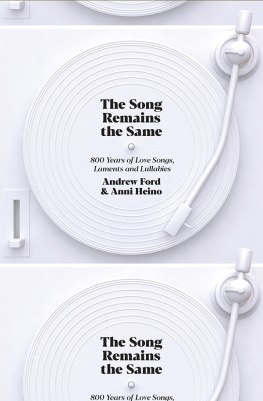
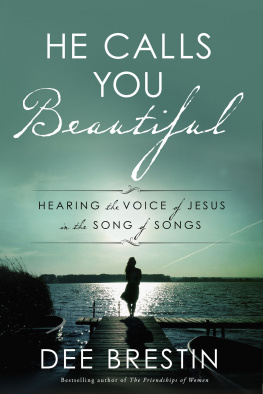
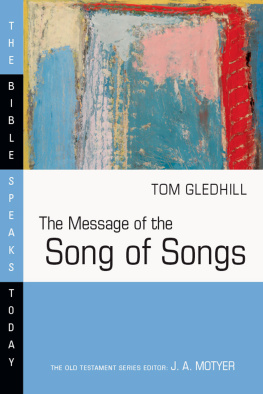
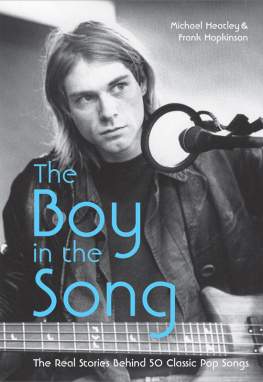
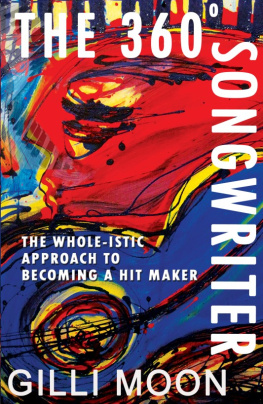
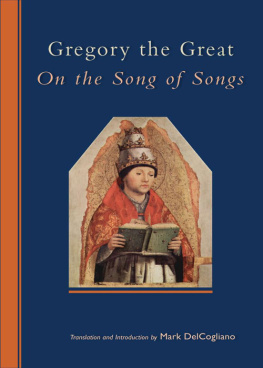
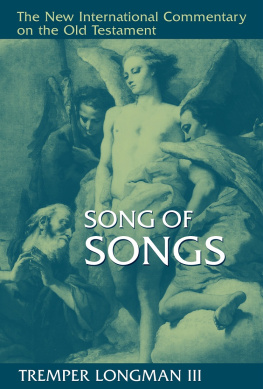
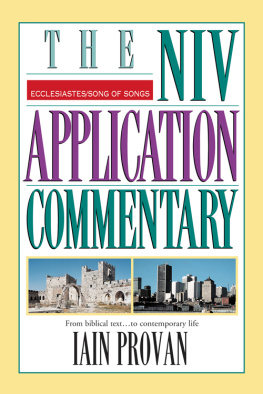

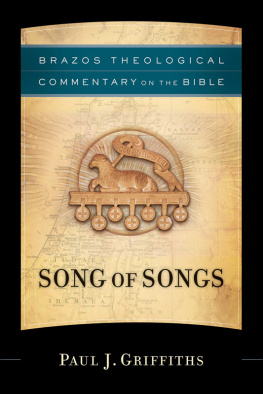
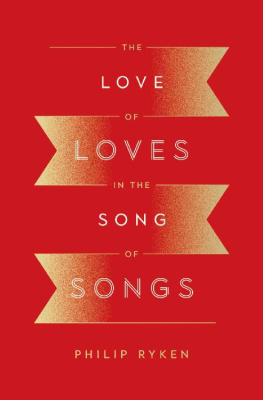
![Othmar Keel - The Song of Songs [Song of Solomon]](/uploads/posts/book/82605/thumbs/othmar-keel-the-song-of-songs-song-of-solomon.jpg)

